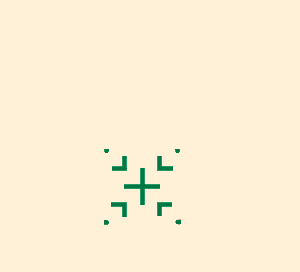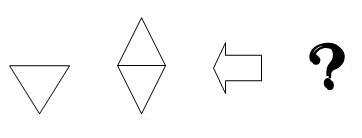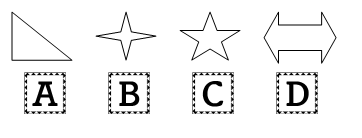Mathematical Logic Course - FAQ Contents
- 1. Why should my child study Mathematical Logic?
- 2. Does preparation in Math Logic problems contribute towards Gifted and Talented selection process?
- 3. What are some common Myths about Gifted students and what are the Truths?
- 4. How does participation in Math Olympiads help eventually towards college admissions?
- 5. Do you teach basic Math Concepts like addition, subtraction, division and multiplication?
- 6. Will the Math Logic problems tackled in the workshops be merely numerical in nature?
- 7. What is the Olympiad/competition in focus for the current workshops?
- 8. What other Olympiads do you provide coaching for and would potentially have additional courses/workshops on?
- 9. Will such workshops be conducted again later in the year?
- 10. Where will this Mathematical Logic Workshops be held?
- 11. What is the registration fee structure?
Why should my child study Mathematical Logic?
Cognitive research shows that young children develop an extensive everyday mathematical logic base and are capable of learning more and deeper mathematical logic than usually assumed. The content of mathematical logic for young children is wide-ranging (number and operations, shape, space, measurement and pattern) and sometimes abstract. It involves processes of thinking as well as skills and rote memory. Components of early childhood mathematical logic education range from play to organized curriculum. Young children thus are constantly learning new skills and mastering new materials. Acquiring new abilities is a vital part of growing up and entering adulthood. Mathematical logic is one of the most elementary of such skills. Knowledge of math and logic at a young age can help prepare students for many different fields of education and even teach them an entirely new way to think.
Does preparation in Math Logic problems contribute towards Gifted and Talented selection process?
Yes -- Most Gifted and Talented selection programs focus on mathematical logic problems such as -- analogies, matrix logic, table logic, circle logic, syllogisms, and Venn Diagrams. Our workshops introduce students to each type of problem, then lead them through the process of understanding and solving problems in the class. The students are encouraged to make up their own logic problems to try on relatives and friends. Using inductive and deductive reasoning, students examine data, looking for possible patterns, reasonable solutions, possible inferences, and possible conclusions. The analytical skills learned are necessary for success across the Gifted and Talented selection curriculum.
What are some common Myths about Gifted students and what are the Truths?
Common Myths About Gifted Students.
- Gifted students are a homogeneous group, all high achievers.
- Gifted students do not need help. If they are really gifted, they can manage on their own.
- Gifted students have fewer problems than others because their intelligence and abilities somehow exempt them from the hassles of daily life.
- The future of a gifted student is assured: a world of opportunities lies before the student.
- Gifted students are self-directed; they know where they are heading.
- The social and emotional development of the gifted student is at the same level as his or her intellectual development.
- Gifted students are nerds and social isolates.
- The primary value of the gifted student lies in his or her brain power.
- The gifted student's family always prizes his or her abilities.
- Gifted students need to serve as examples to others and they should always assume extra responsibility.
- Gifted students make everyone else smarter.
- Gifted students can accomplish anything they put their minds to. All they have to do is apply themselves.
- Gifted students are naturally creative and do not need encouragement.
- Gifted children are easy to raise and a welcome addition to any classroom.
- Gifted students are often perfectionistic and idealistic. They may equate achievement and grades with self-esteem and self-worth, which sometimes leads to fear of failure and interferes with achievement.
- Gifted students may experience heightened sensitivity to their own expectations and those of others, resulting in guilt over achievements or grades perceived to be low.
- Gifted students are asynchronous. Their chronological age, social, physical, emotional, and intellectual development may all be at different levels. For example, a 5-year-old may be able to read and comprehend a third-grade book but may not be able to write legibly.
- Some gifted children are "mappers" (sequential learners), while others are "leapers" (spatial learners). Leapers may not know how they got a "right answer." Mappers may get lost in the steps leading to the right answer.
- Gifted students may be so far ahead of their chronological age mates that they know more than half the curriculum before the school year begins! Their boredom can result in low achievement and grades.
- Gifted children are problem solvers. They benefit from working on open-ended, interdisciplinary problems; for example, how to solve a shortage of community resources. Gifted students often refuse to work for grades alone.
- Gifted students often think abstractly and with such complexity that they may need help with concrete study- and test-taking skills. They may not be able to select one answer in a multiple choice question because they see how all the answers might be correct.
- Gifted students who do well in school may define success as getting an "A" and failure as any grade less than an "A." By early adolescence they may be unwilling to try anything where they are not certain of guaranteed success.
How does participation in Math Olympiads help eventually towards college admissions?
Extracurricular activities such as participation in Math Olympiads are almost as important as your grades themselves. Colleges increasingly want to see your personality. They want to see that not only are you smart enough to survive, but you are a great fit to thrive there, to learn immensely but to also have fun. Everything from your math and science research to your national awards in creative writing would make you stand out as a candidate. We are not trying to say that grades aren't important -- no amount of participation/winning extracurricular competitions are going to rescue you from a 1.75 GPA and a 1200 SAT score. But the converse is true too; extracurricular competitions such as Math Olympiads are playing an increasingly huge rule in application decisions. Extracurricular activities should be things you do for yourself because good schools want to see not just that you participated, but also that you really care about the things you spend your time doing.
Do you teach basic Math Concepts like addition, subtraction, division and multiplication?
The Mathematical Logic workshops is not intended as a primary learning vehicle for basic Math Concepts like addition, subtraction, division and multiplication. Our main emphasis will be on areas such as Arithmetic word problems (including percent, ratio, and proportion), properties of integers (even, odd, prime numbers, divisibility, etc.), Sets (union, intersection, elements), Counting techniques and Sequences and series.
Will the Math Logic problems tackled in the workshops be merely numerical in nature?
Mathematical-Logical Intelligence is the ability to think conceptually and abstractly, and capacity to discern logical or numerical patterns. Visual-Spatial Intelligence on the other hand is the capacity to think in images and pictures, to visualize accurately and abstractly. Complex logical nonnumerical problems often arise more frequently than do problems of a numerical nature. Our Math Logic workshops will focus on solving nonnumeric as well as numeric problems as long as they employ logic and analysis.
What is the Olympiad/competition in focus for the current workshops?
For the current workshops we are focusing both on the AMC 8 and on the Math Kangaroo. For more than 60 years, students across the country have taken up the challenge of America ís longest-running and most prestigious math contests, The American Mathematics Competitions (AMC). The AMC 8 is designed for middle school students in eighth grade and below. Math Kangaroo in USA is a popular international not-selective competition in mathematics for students in grades 1 through 12. The competition takes the form of a multiple choice test. Each participant is seen as a winner and receives recognition and gifts on test day.
What other Olympiads do you provide coaching for and would potentially have additional courses/workshops on?
Elementary through high-school students participate in one or more of the following Math competitions. The list provided here is purely for the awareness of the parents and is by no means exhaustive. We also wish to clarify here that the Mathematical Logic workshops are not affiliated with nor endorsed by any of the following :
- American Mathematics Competitions (AMC 8/10/12) : Students have the chance to compete to be part of the USA Mathematical Olympiad (USAMO) or the American Invitational Mathematical Examination (AIME). The top 12 scoring students from across the nation are invited to the awards ceremony in Washington, DC. Then, 6 of the 12 students will compete in the International Mathematical Olympiad (IMO).
- eCyberMission : eCyberMission is a web-based science, math and technology competition for 6th through 9th grade teams. Compete for regional and national awards while working to solve problems in your community.
- Mandelbrot Competition : The Mandelbrot Competition is voted one of the best round by round math contest in the United States according to a recent survey. In a nutshell, the goal of the contest is to introduce high school students of all ability levels to accessible new topics in mathematics while providing stimulating, challenging problems to stretch the best students in the country. The team test portion of the contest emphasizes mathematical writing skills and effective group work.
- Math Kangaroo in USA : Math Kangaroo in USA is a popular international not-selective competition in mathematics for students in grades 1 through 12. The competition takes the form of a multiple choice test. Each participant is seen as a winner and receives recognition and gifts on test day.
- Math Prize for Girls : The Advantage Testing Foundation sponsors an annual math competition for high-school girls, the largest monetary math prize for girls in the world. Their goal is to encourage young women with exceptional potential to become the mathematical and scientific leaders of tomorrow. Visit their website for eligibility criteria.
- Mathematical Olympiads for Elementary and Middle Schools (MOEMS) : Mathematical Olympiads for Elementary and Middle Schools (MOEMS), is a non-profit public foundation offering premier math contests for grades 4-6 and grades 7-8. Their goals include: To stimulate enthusiasm and a love for Mathematics; introduce important Mathematical concepts; teach major strategies for problem solving; develop Mathematical flexibility in solving problems; strengthen Mathematical intuition; foster Mathematical creativity and ingenuity; provide for the satisfaction, joy, and thrill of meeting challenges. Created in 1977 by Dr. George Lenchner, an internationally known math educator, the Math Olympiads went public in 1979. Schools can enter teams or parents can get excellent mathematical supplies for their children.
- Tests of Engineering Aptitude, Mathematics and Science (TEAMS) : TEAMS (Tests of Engineering Aptitude, Mathematics and Science) is an annual competition for middle and high school students designed to help them discover their potential for engineering. Using science, technology, engineering and mathematics (STEM) and 21st century learning skills, students work collaboratively to problem solve real-world engineering challenges.
- Noetic Math Competition : The Noetic Learning Math Contest is a math challenge for the elementary school students. The goal of the competition is to encourage young students' interest in math, to develop their problem solving skills, and to inspire them to excel in math. In this contest students are given 45 minutes to solve 20 problems that cover a broad range of mathematical skills.
Will such workshops be conducted again later in the year?
There is a good likelihood that this course will be conducted periodically. Please add your name to our distribution list so that we can keep you informed.
Where will this Mathematical Logic Workshops be held?
The Mathematical Logic Workshops will be held in Ashburn, VA. The exact location and dates/times will be provided in advance to those who register. If you have any more questions or queries please Contact us.
What is the registration fee structure?
Registration fees and schedule details for different courses are here.



